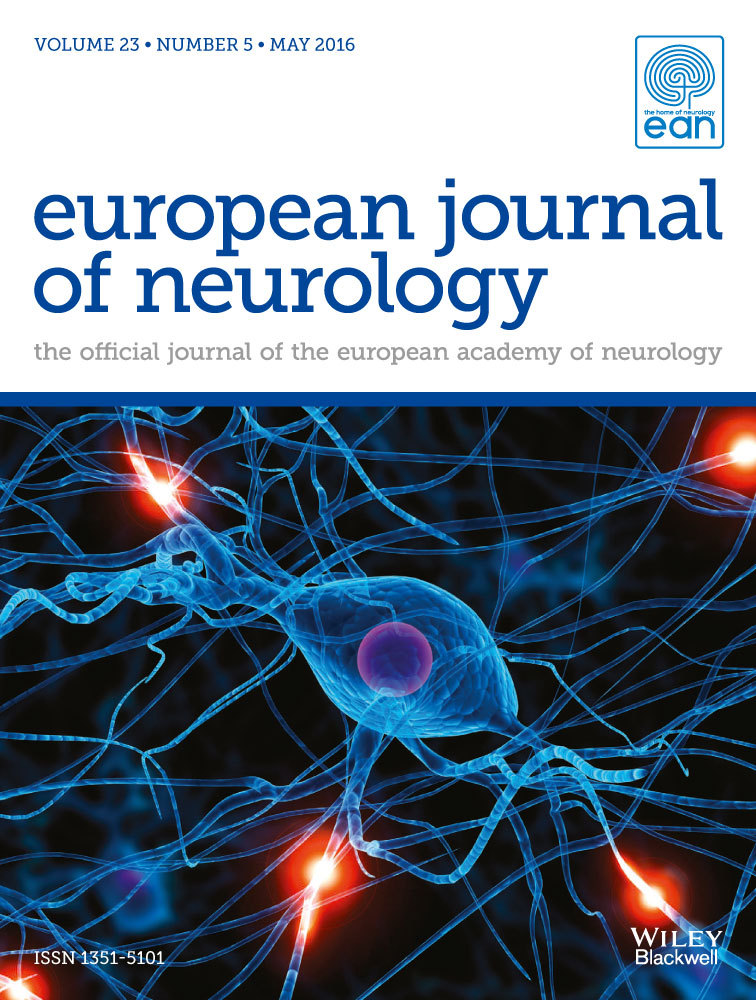Substantia nigra hyperechogenicity is related to decline in verbal memory in healthy elderly adults
Abstract
Background and purpose
Deficits in cognition have been reported in Parkinson's disease (PD) already in the early and even in the pre-motor stages. Whilst substantia nigra hyperechogenicity measured by transcranial B-mode sonography (TCS) represents a strong PD marker and is associated with an increased risk for PD in still healthy individuals, its association with cognitive performance in prodromal PD stages is not well established.
Methods
Two different cohorts of healthy elderly individuals were assessed by TCS and two different neuropsychological test batteries covering executive functions, verbal memory, language, visuo-constructional function and attention. Cognitive performance was compared between individuals with hyperechogenicity (SN+) and without hyperechogenicity (SN−).
Results
In both cohorts, SN+ individuals performed significantly worse than the SN− group in tests assessing verbal memory (word list delayed recall P = 0.05, logical memory II P < 0.017). Significant differences in Mini-Mental State Examination score (cohort 1, P = 0.02) and executive function tests (cohort 2, Stroop Color−Word Reading, P = 0.004) could only be shown in one of the two cohorts. No between-group effects were found in other cognitive tests and domains.
Conclusions
These results indicate that individuals with the PD risk marker SN+ perform worse in verbal memory compared to SN− independent of the assessment battery. Memory performance should be assessed in detail in individuals at risk for PD.




